BAGHDAD - A battalion of young men march gallantly across a parade field. A sharp command halts them, like a wave crashing into a deep blue sea of uniforms, at the position of attention.
A slender 16-year-old stands motionless amongst the seemingly-endless ranks of high school graduates. His hands are clenched fists at the end of stiff, lanky arms. Beads of sweat form streams racing down his cheeks, leaving traces of salt on his boyish face.
Two years ago, Muner Lafta Ali said he was a boy with dreams and ambitions. He always dreamed of becoming a police officer.
Planted on a couch in his family room, like most young boys on mundane mornings, Ali watched the television.
Like an omen, "I saw a commercial for a high school on the television and felt encouraged. I prepared all my paperwork and picked up my application in Baghdad," Ali said, adding that his parents motivated him to achieve his goal.
Ali is a recent honor graduate of the first class of 300 students to graduate in late October from the Police Commissioner Institute located at the Baghdad Police College in central Baghdad, his native home.
The institute is a unique vocational school commissioned by Iraq's Ministry of Interior. Unlike standard high schools in Iraq where students can achieve a degree in three years, teens typically between 14 and 19 from throughout Iraq apply for the Police Commissioner Institute's accelerated two-year program, said Police Commissioner Institute Manager Maj. Gen. Abdul Khaliq Abdul-Hadi.
Students receive general education in accordance with the Ministry of Education's requirements and also prepare vocationally in a curriculum developed by the Training Qualification Institute at the Baghdad Police College.
These graduates will immediately join the ranks of Iraqi Police as commissioners in the seventh degree, equivalent to a corporal, Khaliq said. Additionally, they have earned a high-school diploma, which affords them the opportunity to continue their education at any Iraqi College.
"From the students' perspective, this isn't a fast track to become an IP," Khaliq said. They could go to a traditional high school, but most enter the military-style program because it will give them a leg up as young police commissioners.
Carrying the Police Commissioner Institute guidon, Ali stands out as a leader amongst peers. He wears sergeant's rank wrapped around his arm, black with bold, red stripes.
"My ambitions are like any other young Iraqi - to serve my country," said Ali, whose sincerity is humbling.
The sergeant insignia identifies individuals as squad leaders, liaisons between squadron and training officers.
"All our students have ambition, enthusiasm and take initiative," said one training officer who wished to remain unidentified for security reasons. Individuals like Ali stand out by demonstrating discipline and proficiency in theory and practical exercises.
"I made it a goal to be an honor student," Ali said. "I was determined and I worked hard." Even his stern expression radiates boyish charm.
As a result, Ali and others in the top 25-percentile of the class are accepted into the Baghdad Police College to continue their education, and after three years of active police service have the option to attend a nine-month officer commissioning course. Ali said he now aspires to become an Iraqi Police Lieutenant.
Students at the institute are challenged both intellectually and physically. While most young men are tucked in between the sheets, clinging to an extra wink of sleep, these students' slumber is interrupted five days a week with a wake-up call, as training begins consistently at 5 a.m.
Starting each day off with physical fitness followed by breakfast, the students then go onto study general education courses in subjects like Islamic education and geography. Students also study ethics in law, human rights, and criminal court procedures.
In the afternoon, students continue tactical defense training to include weapons familiarization and crowd control. Their weekdays end at roughly 10 p.m. with a review session.
Although the training days are long and sometimes he gets homesick, Ali said he is proud of his accomplishments. His experiences and training at the school have taught him to be patient and that with determination he can make a difference in Iraq.
"Students transition from civilian to police here," the training officer said. "They leave the academy with discipline, and they are skillfully qualified to serve in the Iraqi Police."
Training officers agree rigorous training requires rest and recuperation. Students are afforded two days a week to visit family and two months vacation each year, or term. In addition, students gain real-world experience while interning one month each term with Iraqi Police, either in their own or nearby provinces.
A handful of students are active Iraqi Police who have been selected to attend the school for professional development. The oldest in the class is a 22-year-old Iraqi Police corporal, who has served with the IP since 2004.
"I am proud and glad, awaiting my graduation and my future," Cpl. Taysser Abaid said with a hint of excitement.
The institute's goal is to professionally develop their students. "The more we support the Iraqi Police with good commissioners, the more we can support Iraqi society," Khaliq said.
Development of the Police Commissioner Institute began with a law passed Iraq's legislators in 2003, a law which finally took effect in 2007 primarily because Iraq's principal efforts and resources were invested in Operation Iraqi Freedom, Khaliq said.
In early-October 2007 media in the form of advertisement and public speaking announcements were used to attract students, who had finished intermediate school, to apply for the Police Commissioner Institute. Applications began to pour in from many provinces throughout Iraq.
The recruiting process is ongoing. The subsequent class has grown to 350 students, and the third will receive 400 high-school students, Khaliq said.
Applicants who meet the academic requirements are interviewed by a senior officer committee at the institute and have to pass a physical fitness test before being accepted into the program.
Once students enter the program, they must perform academically, demonstrate understanding of theory and practical applications and continue to meet physical fitness standards.
The institute's students have everything they need to succeed, since they are awarded full scholarships, including room and board, Khaliq said. In addition, they receive instruction from both experienced Iraqi training officers and personnel with the Iraq Training and Advisory Mission-Police.
"Our school has so many skillful trainers," Khaliq said. "One of our goals is to continue to support the 20 instructors on our staff and bring more trainers to the institute."
On graduation day, graduates chanted "Long live Iraq" as they marched proudly across the parade field before an audience of MoI dignitaries, teachers and peers.
"We are proud of this first class of graduates," Khaliq said. "And for the Training Qualification Institute, which has accomplished a glorious goal in certifying new Iraqi Police who will serve Iraqi society."
Editor's note: Alicea Valentin is a member of the Ohio Army National Guard's 196th Mobile Public Affairs Detachment attached to the U.S. Forces-Iraq Deputy Commanding General for Advising and Training Public Affairs Office.
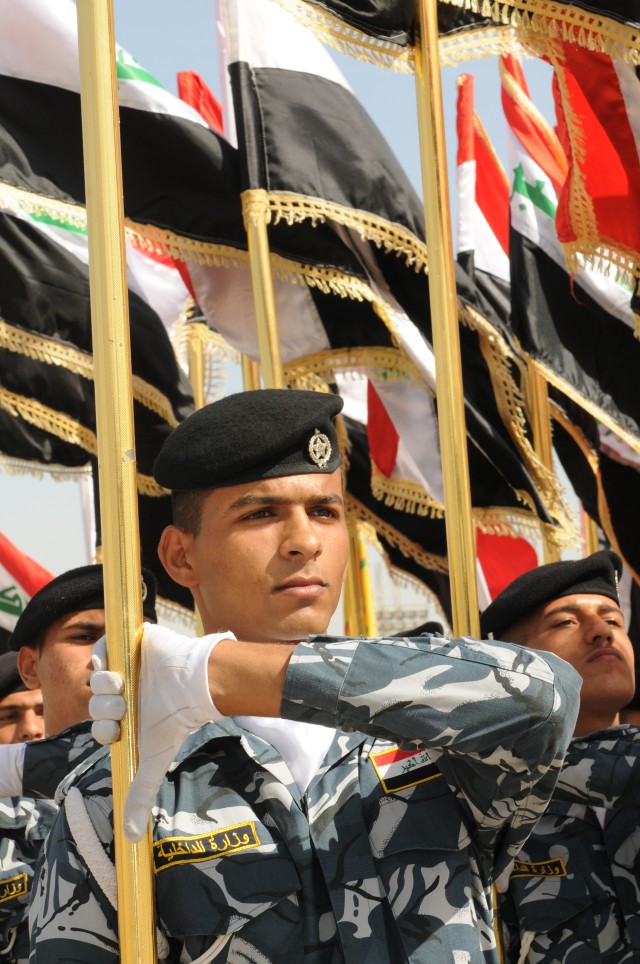
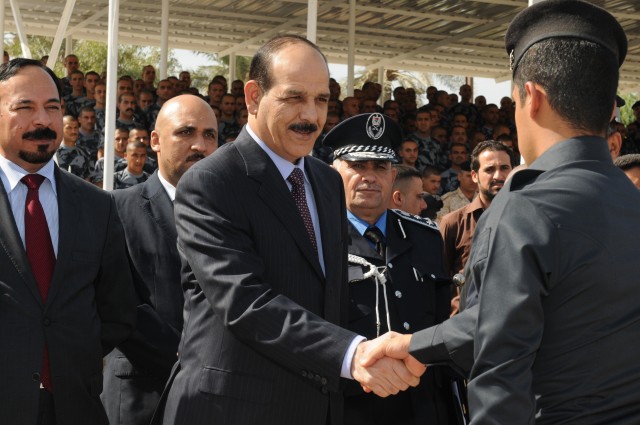
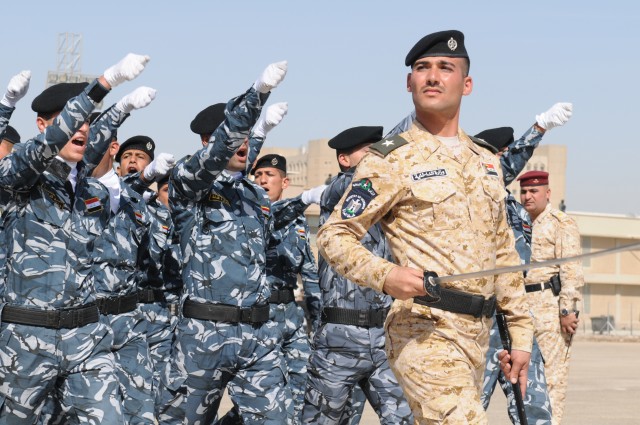
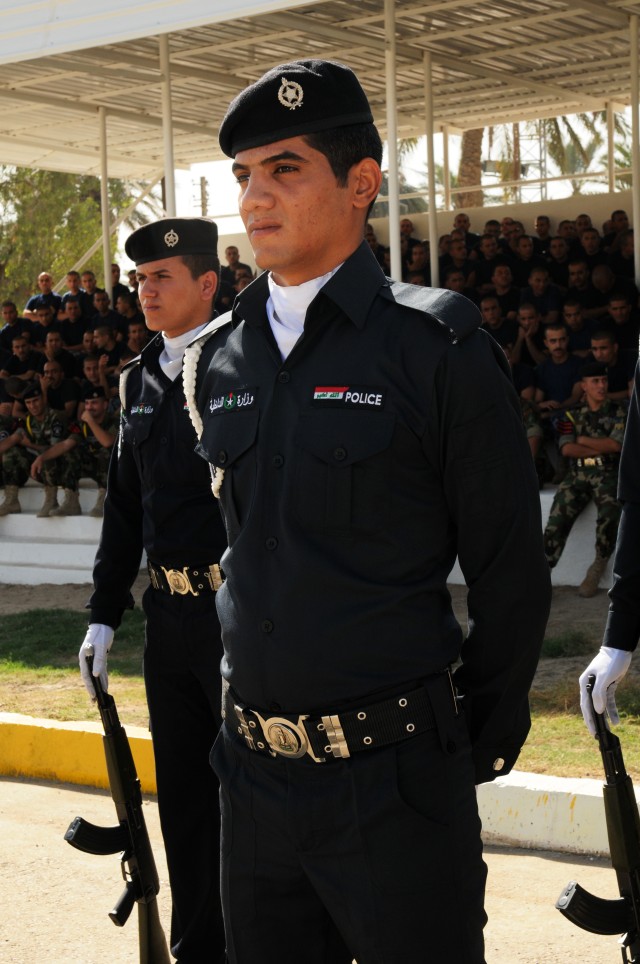
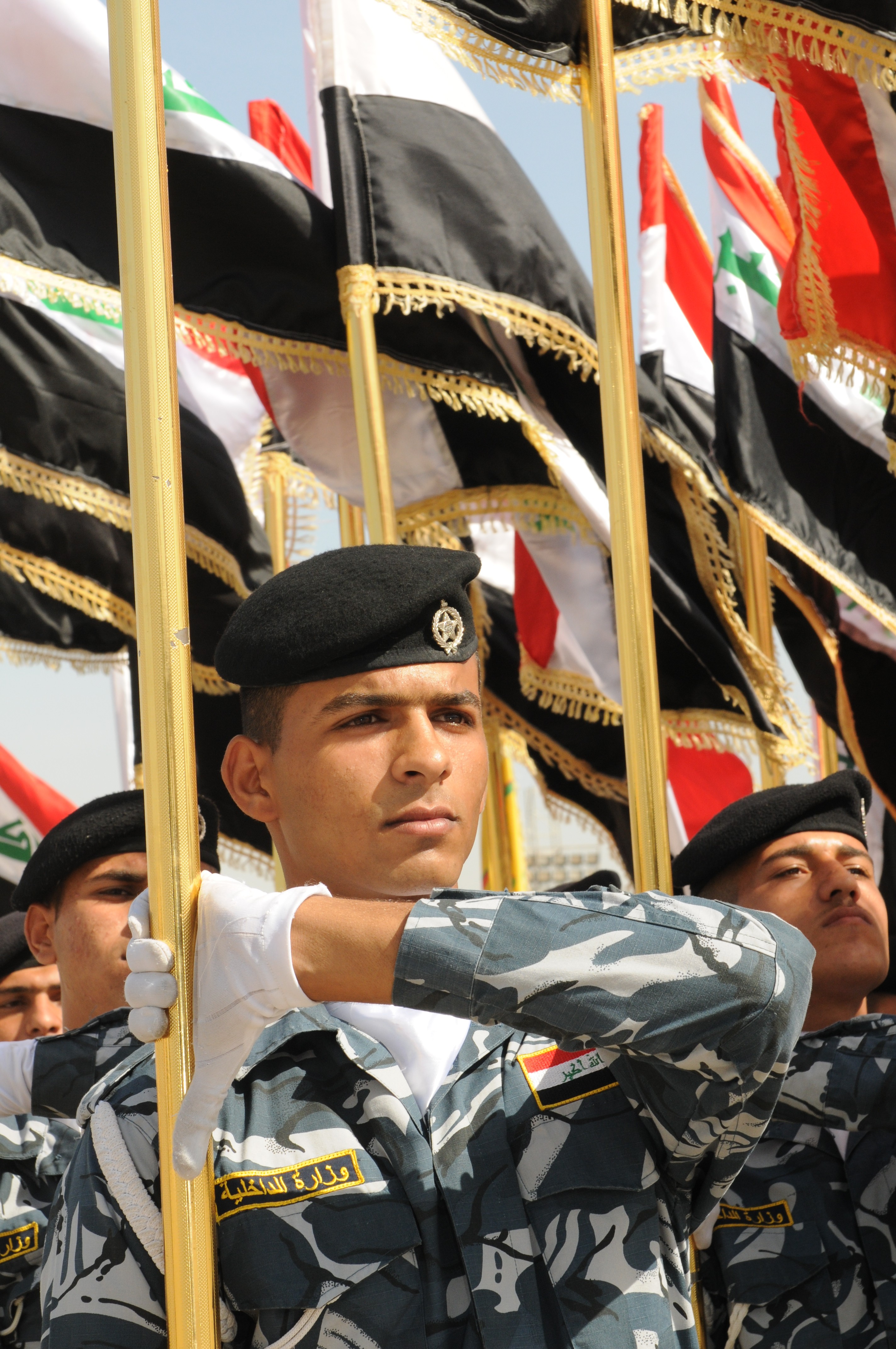
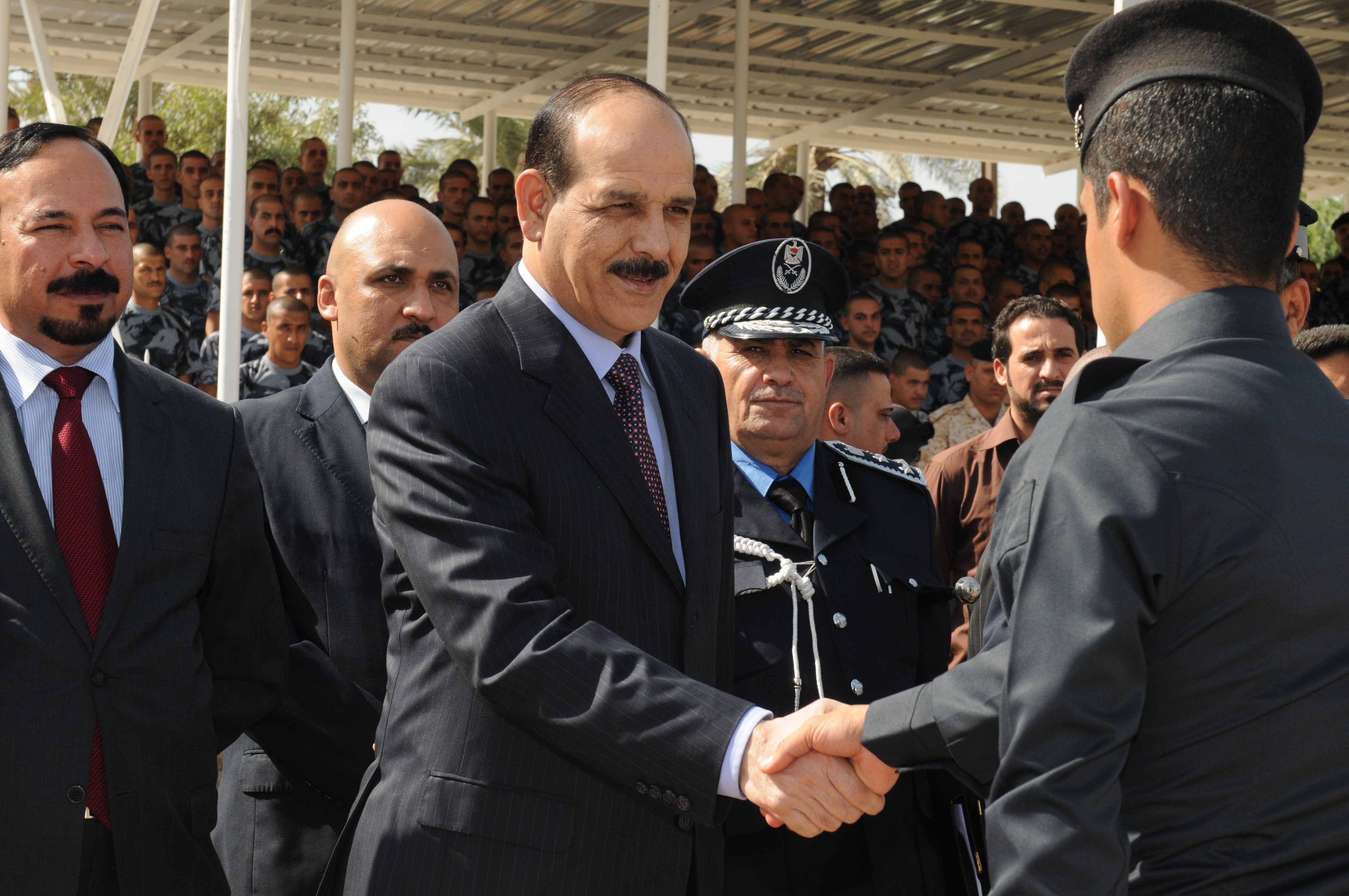
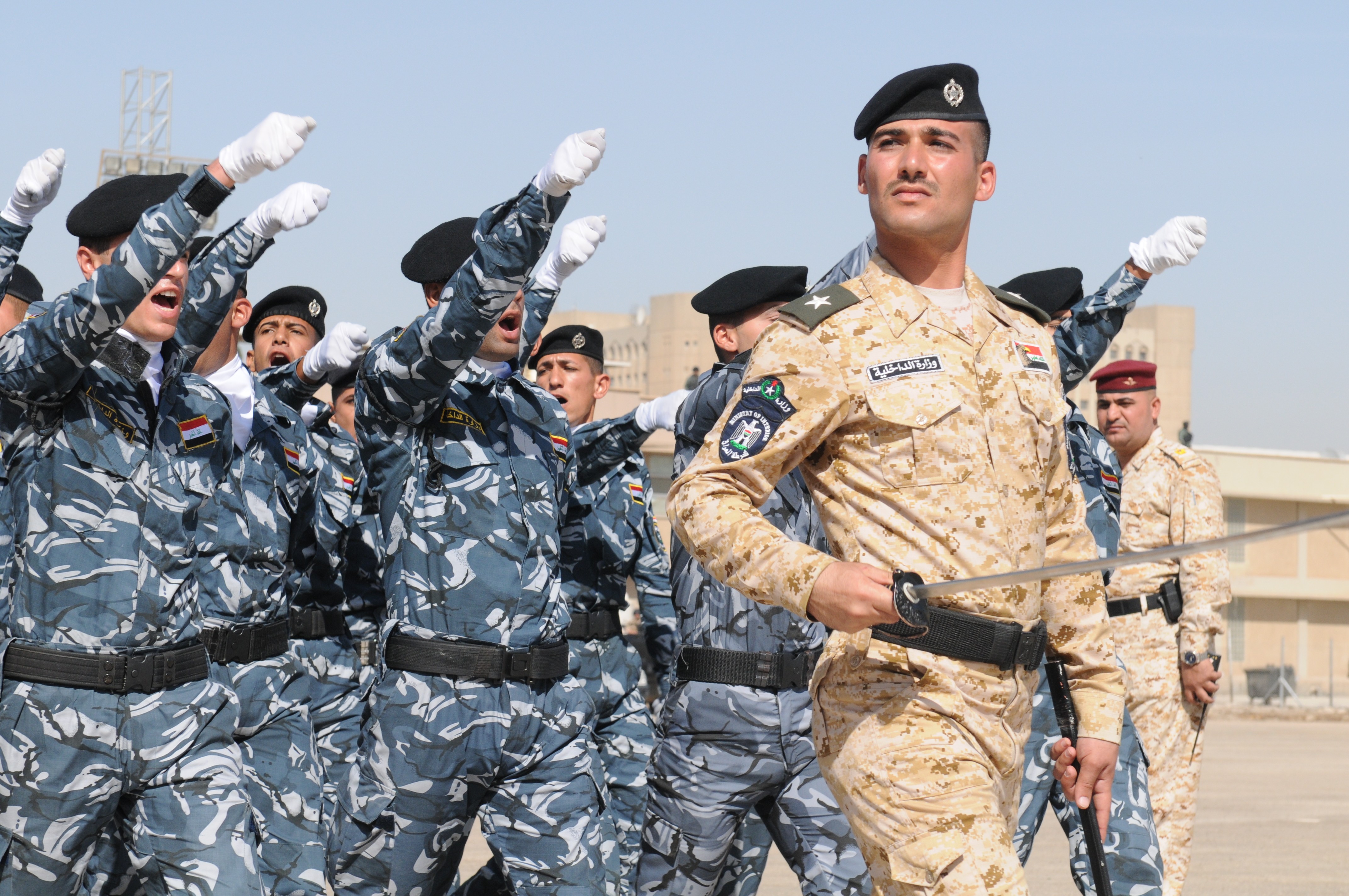
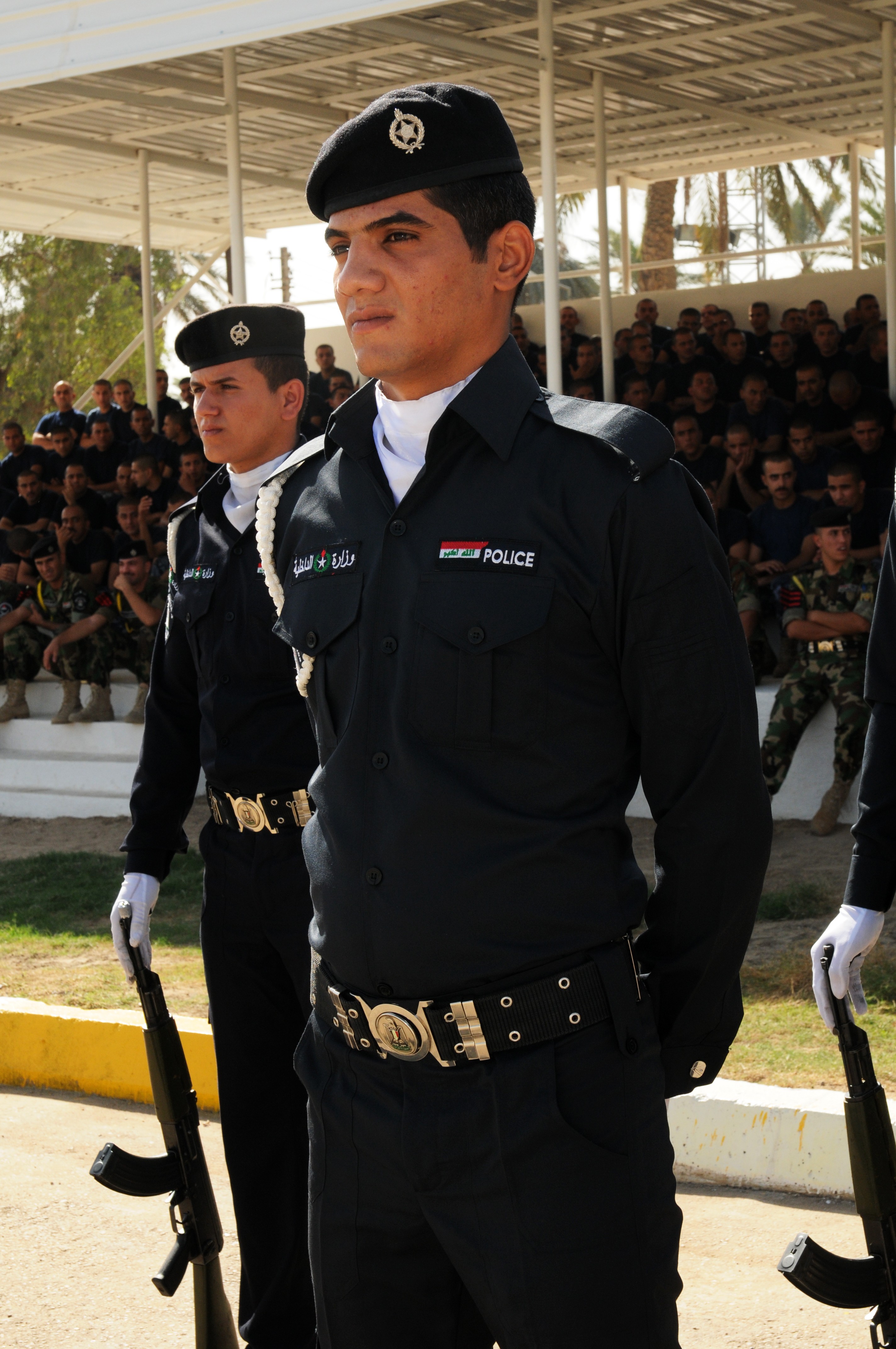
Social Sharing